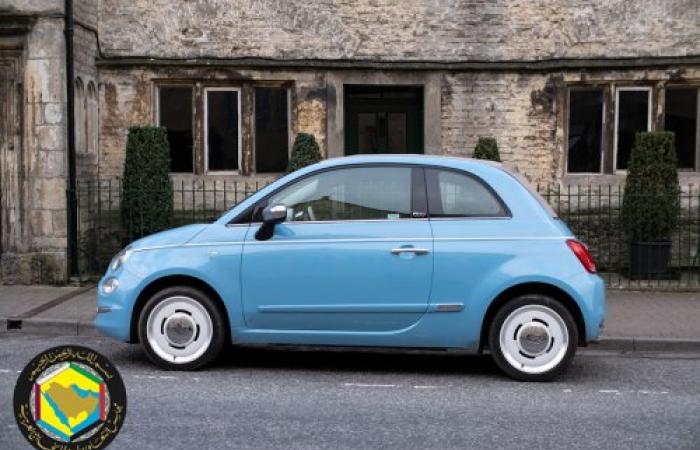
Riyadh Embraces the Future: Autonomous Vehicles Transform Urban Transportation
In a groundbreaking achievement for Saudi Arabia's technological advancement, more than 1,000 commuters have successfully completed journeys using self-driving vehicles in Riyadh, marking a historic milestone in the Kingdom's ambitious journey toward smart city transformation. This development represents a significant leap forward in implementing Vision 2030's objectives for sustainable urban mobility and technological innovation.
A New Era of Transportation
The capital city of Saudi Arabia is witnessing a revolutionary shift in how residents navigate the bustling metropolis. The deployment of autonomous vehicles on Riyadh's roads demonstrates the Kingdom's commitment to becoming a global leader in transportation innovation and smart city development. These self-driving cars utilize cutting-edge technology, including artificial intelligence, advanced sensors, and real-time data processing to navigate the city's streets safely and efficiently.
The milestone of surpassing 1,000 passenger journeys is not merely a numerical achievement; it represents a vote of confidence from the public in this transformative technology. Early adopters have reported positive experiences, citing convenience, safety, and the novelty of experiencing futuristic transportation firsthand.
Technology Driving Innovation
The autonomous vehicles operating in Riyadh are equipped with state-of-the-art technology that ensures passenger safety and optimal route efficiency. Multiple cameras, radar systems, and LIDAR sensors work in harmony to create a comprehensive 360-degree view of the vehicle's surroundings. Advanced machine learning algorithms process this information in real-time, making split-second decisions to navigate traffic, avoid obstacles, and ensure smooth transportation.
The integration of 5G connectivity allows these vehicles to communicate with traffic management systems and other connected infrastructure, creating a synchronized transportation network. This level of connectivity is essential for managing the complex urban environment of a growing city like Riyadh, where traffic patterns constantly evolve.
Vision 2030 and Smart City Goals
This autonomous vehicle initiative aligns perfectly with Saudi Arabia's Vision 2030, the comprehensive blueprint for economic diversification and modernization. The program emphasizes innovation, sustainability, and quality of life improvements for citizens and residents. By investing in autonomous transportation, the Kingdom is addressing multiple objectives simultaneously: reducing traffic congestion, lowering carbon emissions, improving road safety, and positioning itself as a technology hub in the region.
The success of this pilot program in Riyadh sets the stage for expansion to other major cities across the Kingdom. Officials have indicated that the positive response and smooth implementation provide a strong foundation for scaling up autonomous vehicle deployment in the coming years.
Safety and Regulatory Framework
The Saudi government has established a comprehensive regulatory framework to ensure the safe operation of autonomous vehicles. Stringent testing protocols, safety standards, and operational guidelines have been developed in collaboration with international experts and technology providers. Each vehicle undergoes extensive testing before being approved for passenger service, and continuous monitoring ensures ongoing compliance with safety standards.
Backup systems and safety protocols are built into every aspect of the operation. Trained safety operators remain available to intervene if necessary, though the advanced autonomous systems have demonstrated remarkable reliability in handling diverse driving scenarios.
Environmental Impact and Sustainability
Beyond convenience and innovation, the autonomous vehicle program contributes significantly to environmental sustainability goals. Most of the self-driving vehicles in operation are electric, producing zero direct emissions. This dual approach—combining autonomous technology with electric propulsion—maximizes the environmental benefits while reducing the Kingdom's reliance on fossil fuels for urban transportation.
Efficient route planning algorithms optimize travel paths, reducing unnecessary mileage and energy consumption. The shared mobility model promoted through autonomous ride-sharing services also decreases the total number of vehicles needed on roads, further reducing the environmental footprint of urban transportation.
Economic Opportunities and Job Creation
The autonomous vehicle sector is creating new economic opportunities across various industries. From software development and vehicle maintenance to infrastructure upgrades and customer service, the ecosystem surrounding autonomous transportation is generating employment and fostering skill development in cutting-edge technologies.
Local technology companies and startups are collaborating with international partners to develop solutions tailored to the specific needs of Saudi Arabian cities. This collaboration is building local expertise and establishing the Kingdom as a competitive player in the global autonomous vehicle industry.
Public Reception and Future Outlook
The positive public reception of autonomous vehicles in Riyadh bodes well for future expansion. Passenger feedback has been overwhelmingly positive, with users praising the smooth ride quality, innovative experience, and the sense of participating in a historic technological transformation. Many passengers express enthusiasm about the potential for autonomous vehicles to revolutionize daily commutes and reduce the stress associated with driving in busy urban environments.
Looking ahead, transportation authorities plan to expand the service to cover more areas of Riyadh and increase the fleet size to accommodate growing demand. Integration with other public transportation systems is also under consideration, creating a comprehensive multimodal transportation network that leverages the strengths of various transit options.
Conclusion
The achievement of over 1,000 autonomous vehicle journeys in Riyadh represents more than a technological milestone—it symbolizes Saudi Arabia's determination to lead the Arab world in innovation and smart city development. As the Kingdom continues to invest in cutting-edge transportation solutions, residents and visitors can expect increasingly sophisticated, sustainable, and convenient mobility options. This success story in Riyadh serves as a model for other cities in the region and demonstrates the practical viability of autonomous transportation in real-world urban environments.





